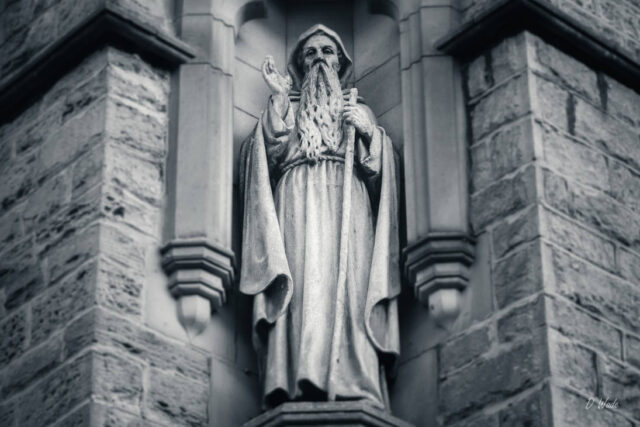Imagine a mountainside meadow lit by the morning sun, where cows graze peacefully. Does it resemble something like this?

This image represents one of the earliest forms of wealth, but it barely scratches the surface of what defines modern business. Everything has a history, and the business landscape we know today is vastly different from that of a thousand years ago. Today, it’s intricate and has been molded by visionaries like John Rockefeller, Henry Ford, Sam Walton, Bill Gates, and Elon Musk. These titans of industry built upon the foundations of traditional barter systems and small-town commerce to shape our contemporary business world. While these names are widely recognized, there were influencers who came before them and many in between. Godric, an 11th to 12th-century businessman, was one such figure.
Born in 1065, Godric, defied tradition by choosing a path of commerce over agricultural servitude. He left his family in his early teenage years to become a peddler, traveling on foot and selling wares at annual fairs. Later, Godric secured work as a ship’s mate. Combining this role with his peddling skills, he journeyed along the British Isles’ east coast, buying goods cheaply and sold them for profit. By his early thirties, he’d risen from poverty to become a part-owner of two ships. His choices led him southward to Spain, Gibraltar, and even the Mediterranean Sea. Like today’s service businesses, Godric maximized profits by offering extra services, such as ferrying pilgrims to the Holy Land, further increasing his wealth.
Known as a merchant king for his business acumen and astute trading abilities, Godric reveled in secular wealth and power. He even rubbed shoulders with King Baldwin I of Jerusalem. However, as he entered his forties, Godric faced a dilemma—a clash of values and wealth—a search for meaning amidst conflicting definitions of success. This predicament remains a challenge for many, both then and now.
Just over a month ago, I listened to an episode of a podcast episode shared by my Pastor titled, What Does “Make It Count” Mean? In it, he highlights multiple values around faith, but challenges the listener to evaluate their values and reorder them, if necessary. One of the values highlighted was, “Discover Your Purpose.”
When we read about Godric’s life, it becomes clear that he grappled with the notion of purpose, even after achieving the status of merchant king. Many people of his era might have thought he had made a meaningful life for himself, given that he had defied the odds within the European Feudal System. However, for Godric, there was a void. At the age of 40, Godric realized that he no longer wished to devote his life to commerce. Instead, he chose to heed a higher calling from the Roman Catholic Church, putting an end to his pursuit of profit. This decision ultimately eclipsed his reputation of an industry titan.
Now you know the story of Saint Godric.

Our team at LeConte Wealth can’t promise you that you’ll be up for sainthood working with us, but we can promise you that we will nudge you toward living a life on purpose. Our Purpose Built Planning™ process was designed specifically to do that.
Remember, “When you aren’t content, you’ll live spent.” – Pastor Trent
